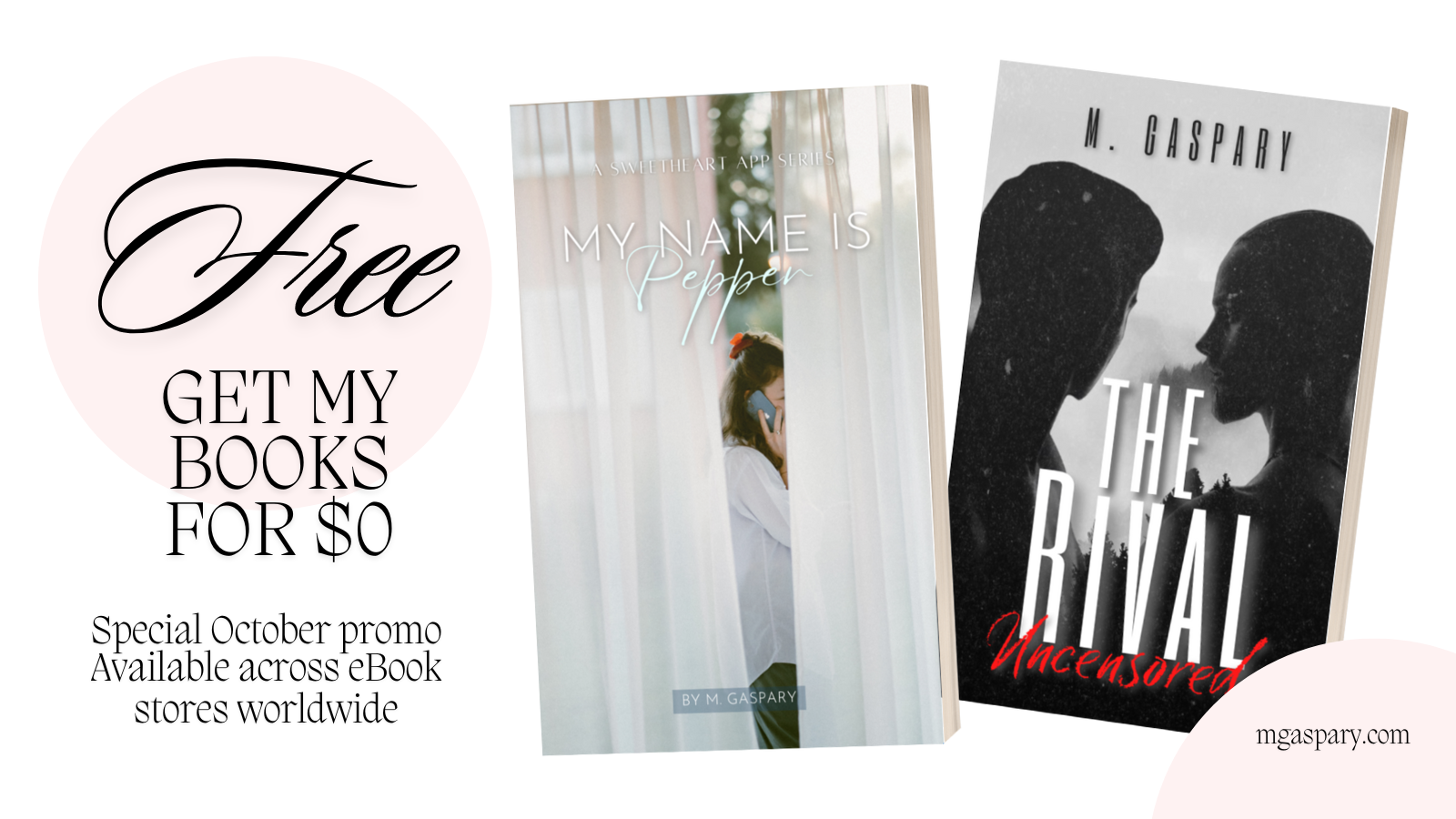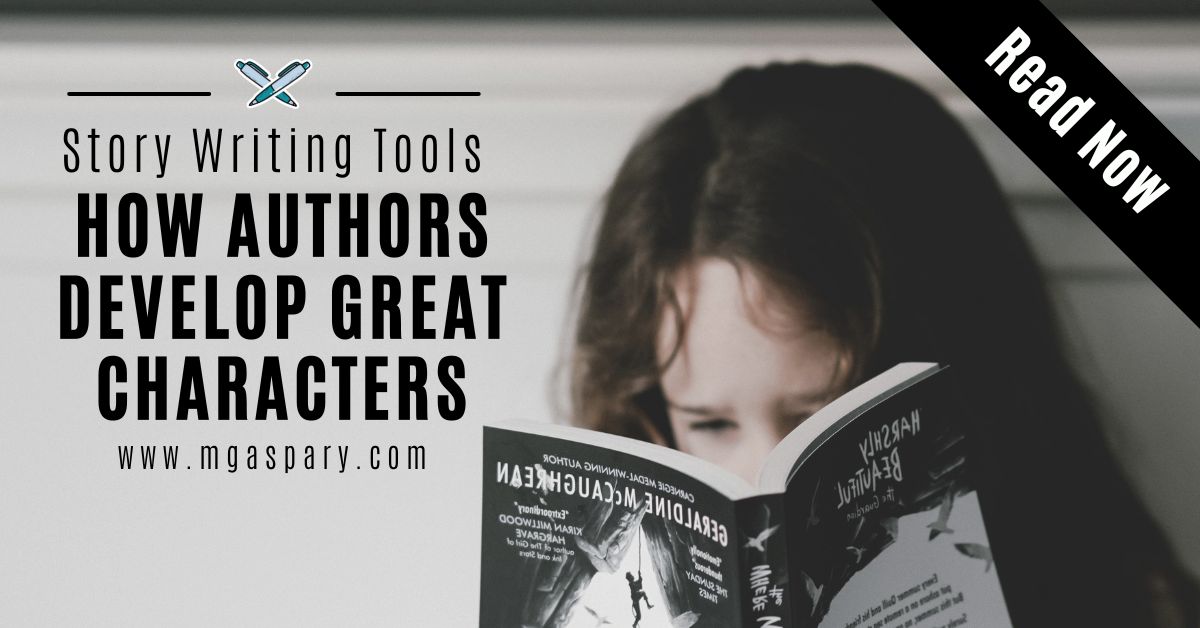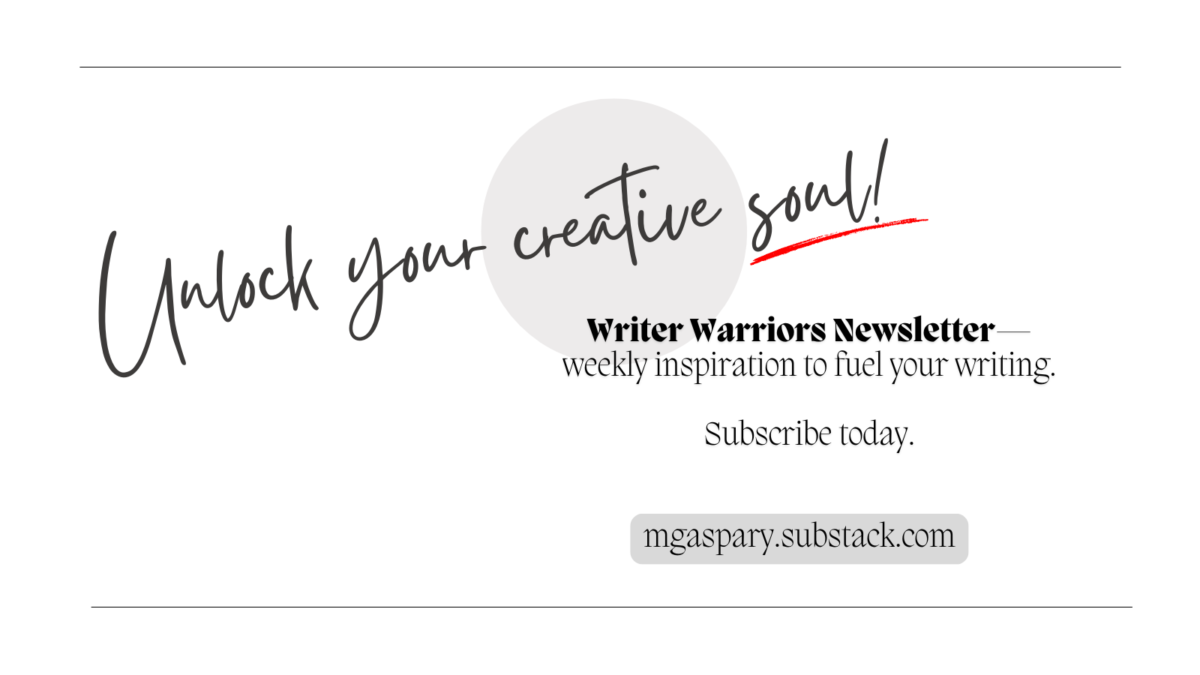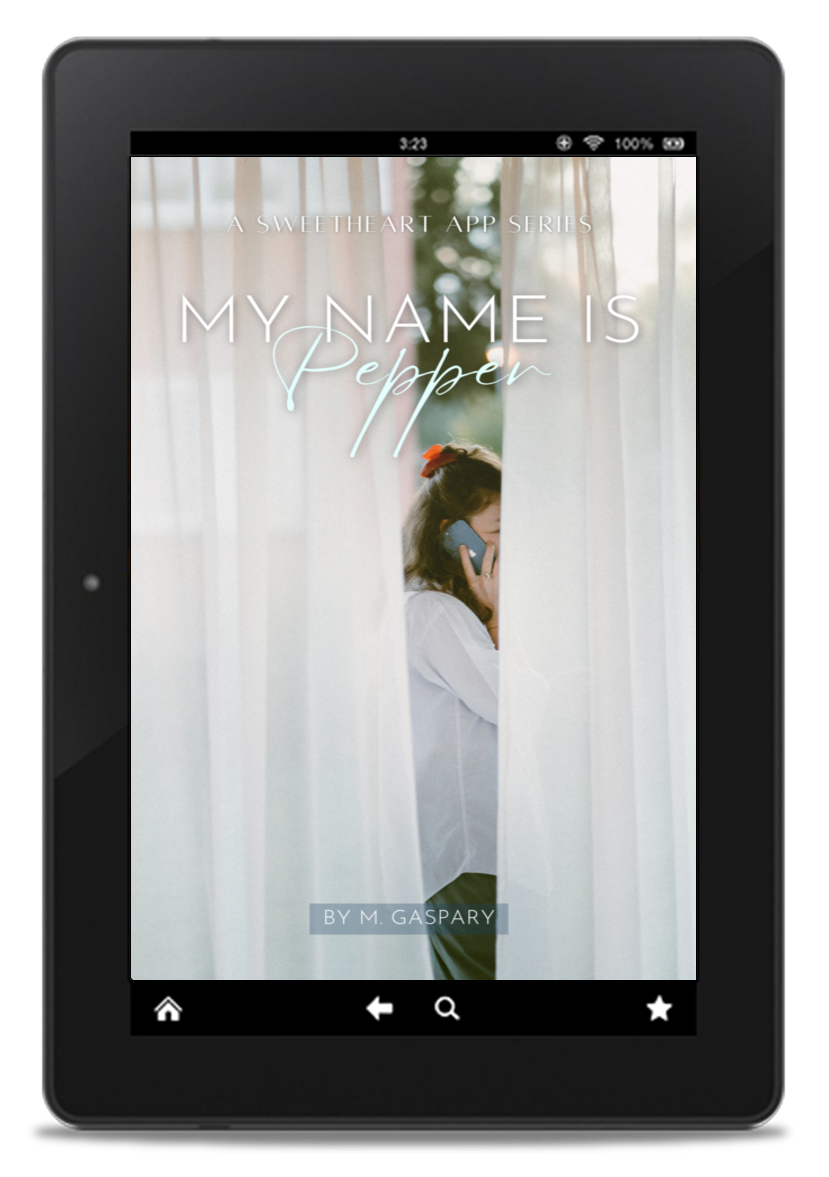Before we start learning how authors develop characters, I invite you to order “The Rival” in your favorite eBook stores worldwide. Click the button below to get a copy. Thank you.

Years ago, I compiled different ways to find inspiration for your novels. So, if you want to check them out, click here. But today, we’ll talk about the creative ways how authors develop characters for their stories.
If that’s your cup of tea, I hope you enjoy this post as it takes you on a learning ride by knowing how other writers do this process in their works. In the end, I hope you will figure out which of these writing tips you will try and apply.
Before we go on, I’d like to remind you if you want to share your thoughts and additional inputs about this topic, feel free to leave them in the comment section below. Let’s engage!
Table of Contents
- How Authors Develop Characters: An Intro
- 5 Reliable Ways How Authors Develop Characters for Their Stories
- Final Thoughts for Developing Great Characters
- Do you have an inspiring writing journey?

How Authors Develop Characters: An Intro
First, figuring out whether you’re a Pantser or an Outliner is necessary. This means asking yourself whether you’re an intuitive writer like me. Why? The reason is simple.
When you know and get familiar with your writing style, choosing which strategies to work on, improve, and practice will be more effortless.
If you identify as an Outliner, I have additional resources, such as the Writer Resources and novel-writing starters.
On the other hand, a Pantser will have a different set of options because this involves the heavy use of intuition, as the INFJ writers do.
For Outliners:
- Check out my gigantic Writer Resources list of writing apps, platforms, and websites I use in my writing career.
- Read my detailed Plottr review if you want tools to create a solid story structure with pre-made templates as guides.
- Develop a novel outline to speed up your writing process.
For Intuitive Writers:
- Review the resources I mentioned for the Outliners, though you must remember you’re not forced to follow the structure because you rely on intuition than logic when creating stories. Alright?
- Learn more about being an INFJ writer by understanding how you function intuitively and contribute as a creative person through the following:
5 Reliable Ways How Authors Develop Characters for Their Stories
When finding the most reliable ways to develop characters, I want to let you know that most of these lessons I learned a lot when I self-published my first romance novel in 2022.
Even though I have no prior book-writing experience, I developed these strategies after teaching myself how to do it and as the outcome of my emotional and intuitive rollercoaster ride.
Another thing I’d like to point out is this. Each writer has different ways of doing it. That means no two writers follow the same strict and rigid routines to produce compelling stories and masterpieces.
Although similarities are inevitable, each writer, you and me, will still have variations from the same strategy.
No two writers follow the same strict and rigid routines to produce compelling stories and masterpieces.
For example, you learn the strategies I did for my work now. But after reading this post, you will want to figure out how to apply my lessons based on your routine. And if that makes sense, it’s okay if this works.
The point is you acquire lessons and exercise critical thinking skills through self-evaluation. So, you ask yourself which of these will work for you and whatnot.
Meanwhile, I’ll share the ones I use when writing stories, which include subscribing to Film Courage to meet experts in the field, from scriptwriters, authors, and directors to film producers.
Personally, listening to them will provide meaningful and beneficial insights about the industry we are trying to pursue.

1. Understanding human psychology
To give you a brief background, Alex and Chen are the main characters of my BL erotic romance novel “The Rival.”
In the book, they are both aged 21 years old and both musicians, but they have different personalities, which often clash and cause havoc among students in the university.
Despite the differences, the student council and the bands found a way to resolve this issue, organizing a charity event in which the protagonists must participate.
Little did they know that this event could lead them to something they had never considered. To summarize, the seduction and flirting have turned into something more serious.
And this is where the book concentrates. The tension creates spice and an emotionally-driven joyride from the first chapter to the end.
As a result, this book reached 148K reads on Wattpad even though it was written as my 2nd draft back in 2018. Until now, I still receive heartwarming and kind messages from readers worldwide because of the book’s story.
Here’s the secret.
To curate better stories, a deep understanding of human psychology ensures your protagonists and antagonists (basically all characters involved) have strong and valid goals, allowing them to become the engine of your plot rather than relying on structuring and planning your story plot with less effective characters.

2. Getting familiar with the Enneagram
Jeff Kitchen, an author, dramatist, and screenwriter, has taught thousands of aspiring filmmakers from Broadway to Hollywood through his flagship training program called “script.kitchen.”
He said he became accustomed to using it after a friend, a top psychiatrist in New York City, introduced the Enneagram as a valuable tool for writers. It’s a personality profiling system that uses ancient wisdom about human nature and cutting-edge psychology.
During his interview with Film Courage, he mentioned using Enneagram as a creative and reliable way to develop, especially for complex characters.
“There are nine basic personality types, and each of them has its [sic] basic fears, desires, motivations, preferences, tendencies, weaknesses, and flaws. Each of the nine types has different aspects, like they’re either healthy, average, or unhealthy, depending on your emotional and psychological shape.”
Jeff Kitchen, Founder of “script.kitchen”
Check out this video below to listen to the whole interview.
3. MBTI personality tests
Liz Bureman’s article on The Write Practice explained how the Myers-Briggs Test helps develop your character. Identifying their types allows you, as the creator, to flesh out the character’s identity better.
She also mentioned basic questions for you to follow and apply in your work, such as:
- Is the hero of your story more concerned with the larger goal ahead of him (an Intuitive habit)?
- Is your hero more focused on the itty-bitty details of achieving that goal (a Sensing habit)?
- Does the sidekick prefer to know the plan beforehand (a typical Judging habit)?
- Does the hero show more interest in changing up the details to adapt to the changing scenarios (a Perceiving habit)?
Do you want to learn more about the Myers-Briggs Test and personality types? Click here to start your Free Personality Test and view detailed results to unlock your character’s potential.

4. Astrology and zodiac signs
Where did I get the idea of Alex and Chen possessing those abilities and flaws in life? Honestly, I also wondered why they acted like this or that when I was editing the book.
A few days ago, I reviewed the novel outline I did years ago (back in 2018) and brought it from my home country (Philippines) to Germany. In fact, I didn’t get that many clothes in my luggage, just my drafts. Haha!
So, where did I base their abilities and flaws in life?
In my outline, I noted this:
Alex Yoon
- Birthday: January 27
- Zodiac sign: Aquarius (though I assumed he’s a Virgo)
- Age: 20 years old
- Height: 6’2” ft.
Chen Lau
- Birthday: November 11
- Zodiac sign: Scorpio
- Age: 20 years old
- Height: 6’1” ft.
Based on their zodiac signs and age, I studied the differences between these two men and created scenarios in my head. Understanding how Scorpio and Aquarius men differ profoundly took time.
Still, it was worth my time because it gave me clarity and a better perspective of their uniqueness as a character and as real human beings who must be responsible for the plot.
Similarly, P. M. Lipscomb, a filmmaker, told Film Courage about taking advantage of using zodiac signs for every character you write about. He said the horoscope doesn’t look scientific.
However, it provides enough information for writers to process the character’s identity. He believes these tools serve as reflections of ourselves and elements of our childhood.
“I’ll choose a random birth date out of the sky. I’ll look up all the facts all the zodiac, all the horoscope stuff I can find about this particular day. [Sic] My belief is the reason we read horoscopes and zodiac… it’s similar to ourselves. I think we are that zodiac sign in the womb, and the elements of your childhood alter parts of that zodiac sign, which gives you billions of different backgrounds and little tiny things start to shift, even though we have all these similarities.”
P. M. Lipscomb, Filmmaker
You can also dive deeper into the Moon Signs aside from the Sun Signs (the notable zodiac signs you know you belong to).
For instance, I was born on November 23, 1992. That means, though my Sun Sign is Sagittarius, my Moon Sign is Scorpio. I possessed the same thirst for wisdom, adventure, and curiosity as most Sags agree.
However, my Scorpio Moon is the essence of me. That means I have the emotional intensity and urge to keep secrets and ooze a mysterious aura to others.
It provides me with the temperament as most Scorpios experience in their lifetimes. In other words, my Moon Sign defines what’s inside of me, though my Sun Sign provides an altruistic external outlook and optimistic vibe.
If interested, you can look into Keiko’s Astrology to know your Moon Signs (aside from your Sun Sign).
5. Finding your characters’ voice (great for intuitive writers)
If you have read the chapters of the novel “The Rival,” you will notice how Alex was far more vocal than Chen, though Chen expressed more intense and passionate affection for Alex.
Although Chen was the one who initiated the “bromance game,” it was Alex who strived to make more efforts to chase Chen.
Who were my real-life inspirational models for these characters?
These are similar scenarios for most people I know, especially within my family and acquaintances, who fall under the Aquarius and Scorpio zodiac signs.
Where did Alex and Chen come from? They were created from scratch.
But, if I were to ask the questions like the whys and the hows of character formation, I could list down these questions like the following:
- How did I create Alex and Chen?
- Why did I make Alex and Chen that way?
- Where did I get the idea of Alex and Chen possessing those abilities and flaws in life?
- Who were my real-life inspirational models for these characters?

It all started with inspiration from a Korean BL series I watched over five years ago. Click here if you like to watch it on YouTube.
Alex and Chen’s personalities are pretty complicated, although they’re introverted. Despite their introversion, they still have their differences shown throughout the novel.
Even though they were based on inspiration, their complex individualities were mostly taken from real-life situations. I wasn’t mentally healthy when I wrote this novel.
As a result, Alex and Chen became who they are — impulsive, erratic, aloof, distressed, yet, warm, loving, and caring individuals.
If you like to learn more about finding the writer and character’s voice inside you, I want you to check out this video below.
Final Thoughts for Developing Great Characters
There are a lot of ways you can do to create characters for your stories. You can use your life experiences or other people’s lives.
What matters is this: The more complex they are, the more human they become. The more challenges you give them, the more relatable they become for your readers.
Before you leave, I want to remind you there is no right or wrong when choosing a piece of better advice or preferring one writing tip and tool over the other.
Knowing which of these tips interests you is vital because you are driven to try them and see how it works for you.
The more complex they are, the more human they become. The more challenges you give them, the more relatable they become for your readers.
Suppose you haven’t tried learning about astrology and zodiac signs. Perhaps, it’s time to look at it and see it as a tool to develop more believable characters than relying on assumption.
When creating realistic characters in our stories, it’s necessary to know and be aware of the personal biases which may impede us from exercising our, for the lack of a better term, creative and authentic self-expression.
This is true for most writers who unconsciously rely on past experiences in their present writing. As an intuitive writer, I am thankful for learning these five reliable ways to develop characters.
It’s easy to get carried away with emotions and intuition when writing. Afterward, this could lead me nowhere because I’ll be lost.
To avoid that, it’s best to have tools that keep intuitive writers grounded. In other words, when we fail to objectively see our past, trauma, and different memorable life experiences, it will be challenging to learn how authors develop relatable, believable, or realistic characters, regardless of the story genre, plot, or characters you select for your work.
If you did figure out a few, don’t hesitate to try them and see the results yourself. It’s better to know them right away than to guess.
Let me know your experience, additional character-developing tips to share with other writers, and your thoughts in the comment section below.

Please support my work!
- Check out my BL romance novel »
- View my planners and journals on Amazon and Etsy
- Become a paid subscriber by clicking the button below to update your subscription. Invite your friends and family to subscribe to the Writer Warriors Newsletter (click the button below)
Do you have an inspiring writing journey?
I welcome guest posts from different people from all walks of life as long as the topics include (but are not limited to) writing and their transformative writing experience, regardless of the niches they belong to.
If you like to submit a guest post on my website, share a brief narrative describing that moment in your life and the lessons you’ve learned from it in the comment section below.
I’ll read them, reach out to you with editorial guidelines, and guide you in writing the article until it’s published and available for the rest of the world via the internet.
Questions?
Let me know in the comment section below if there’s anything else. You can also reach me via email. Send your message by visiting my Contact Page here.




Leave a Reply